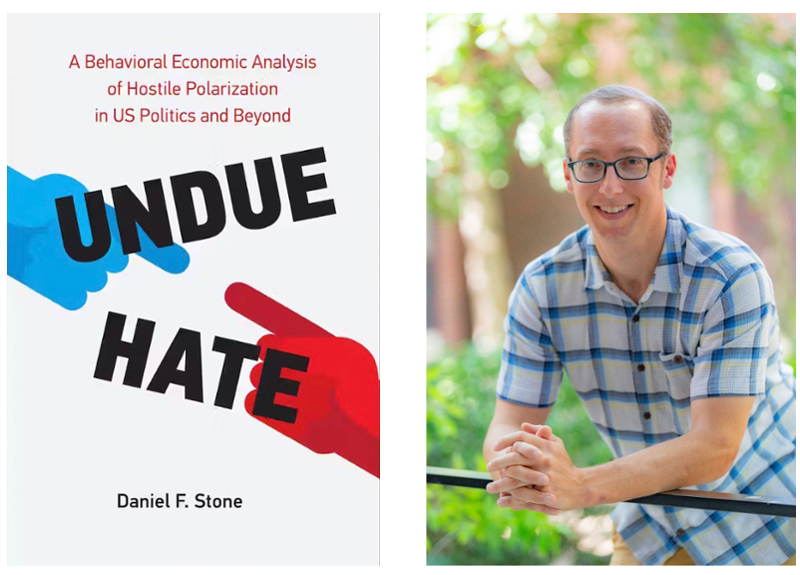Why Do People Hate House Music: Unpacking the Dislike.
Last Updated on September 9, 2024 by Petpalace54
Many people hate house music because they find it repetitive and monotonous. House music has been one of the most popular genres of music for decades, but not everyone enjoys it.
The genre has faced criticism, with many listeners finding the music too repetitive, monotonous, and lacking in creativity. Despite this criticism, house music remains popular among music lovers who enjoy the energy, beats, and feeling of being in a club or festival.
We will explore some of the reasons why people might hate house music and examine the factors that make it so polarizing. We will also take a closer look at the history of the genre and some of the notable artists who have made a significant impact on the house music scene.
Table of Contents
The Popularity Of House Music
Despite being one of the most popular music genres, many people still hate house music due to the constant repetition of beats and lack of lyrics. However, its popularity is undeniable with fans enjoying the high energy and danceable nature of the genre.
House music is one of the most popular genres of electronic dance music known for its repetitive rhythms and synthesized melodies. However, despite its widespread popularity, there are still people who don’t appreciate it as much as other genres. In this post, we’re going to explore the possible reasons why people hate house music. Let’s start by examining the origins and evolution of house music.Origins And Evolution Of House Music
House music originated in Chicago, Illionis, during the early 1980s. It was created by DJs who were experimenting with different electronic sounds and mixing techniques. The name “house” comes from the Warehouse nightclub in Chicago, where the first house music tracks were played. House music drew influences from various other genres, including disco, funk, and soul music. It quickly gained popularity, and by the late 1980s, it had spread to Europe, where it became a dominant genre of electronic dance music.Over the years, house music has evolved and diversified into various sub-genres, such as deep house, tech house, acid house, and many more. Each sub-genre has its unique characteristics and sounds, but they all share the same basic principles of repetitive beat patterns and minimalistic melodies.Global Impact Of House Music
House music has had a significant impact on popular culture, and it’s difficult to overstate its influence. It has played a crucial role in shaping the modern electronic dance music scene and has been a source of inspiration for countless artists.It has also been an essential element of the club and rave culture, providing a soundtrack for partygoers around the world. The euphoric and uplifting energy of house music has helped to create a sense of unity and togetherness amongst ravers, regardless of their backgrounds or beliefs.In conclusion, house music has come a long way since its humble beginnings in Chicago. Its popularity has grown exponentially, and it has become a global phenomenon, influencing music and culture worldwide. Despite some people’s resistance to the genre, it’s clear that house music is here to stay.The Reasons Behind Dislike Of House Music
The dislike of house music may stem from personal preference or cultural background. Some argue that the repetitive nature of the genre and lack of distinguishable lyrics make it unappealing. Additionally, the association with drug culture and nightclubs may also contribute to negative opinions.
Many people do not like house music, and it’s a topic that can be quite controversial within the music community. There are several reasons why people might not enjoy house music, and in this section, we will explore some of the most common reasons. These include a preference for other genres, associations with drug and club culture, and the monotony and repetitiveness of house music.Preference For Other Genres
One of the most common reasons why people might not like house music is simply that they prefer other genres of music. Music taste is subjective, and what one person finds enjoyable, another person might not. Some people might prefer rock, hip-hop, country, or even classical music. It’s possible that someone who doesn’t like house music has simply found other genres that resonate with them more.Associations With Drug And Club Culture
Another reason why people might not like house music is that they associate it with drug and club culture. Many people associate house music with raves and clubs, where drugs like ecstasy are commonly used. While this is not necessarily a direct reflection of the music itself, these associations can be enough to turn some people off from the genre altogether.Monotony And Repetitiveness Of House Music
Lastly, some people find house music to be too repetitive and monotonous. House music often relies on a steady beat and a repetitive structure, which some people might find boring or uninteresting. Additionally, some people might find that all house music sounds the same, which can be a turn-off for those who are looking for more variety in their music.In conclusion, several factors can influence why people might not like house music. These factors include personal taste, associations with drug and club culture, and the monotony and repetitiveness of the genre. While these reasons might not apply to everyone who dislikes house music, they are some of the most common. Ultimately, whether or not someone enjoys house music comes down to personal preference and individual taste.Psychological Theories Of Music Preference
House music is undoubtedly one of the most popular genres around the world, but it’s not uncommon to find people who don’t particularly enjoy it, some of whom even hate it. While personal preferences play a role in music taste, various psychological theories suggest that music preference goes beyond mere preference. In this blog post, we will explore some of the reasons people hate house music, focusing on psychological theories of music preference.
Music As An Extension Of Identity
The preferred type of music can often represent a part of an individual’s identity, and in some cases, it becomes a signifier of social class or personality traits. People who dislike house music might feel that the genre doesn’t align with their self-concept and, therefore, avoid it. On the other hand, individuals who identify with the lifestyle and values portrayed by house music might prefer the genre in the same way that wearing certain clothes or eating specific foods can be tied to identity.
Cultural Background And Language Influence
Cultural and linguistic differences can significantly impact music preference. People who grew up in countries or regions where house music is not widely played might feel uncomfortable listening to it, whereas individuals who grew up in areas where house music is part of the culture and tradition might develop an affinity for the genre. Additionally, language can influence music preference; people are more likely to enjoy music that features lyrics they can understand and relate to.
Emotional Associations With Music
People might develop positive or negative emotional associations with music based on their experiences. For example, someone who got into a fight at a club while house music played in the background might start disliking the genre due to the negative connotations tied to the incident. Similarly, a person who has happy memories associated with the genre might prefer it. Moreover, research has demonstrated that some people are biologically more inclined to enjoy certain types of music than others, making music preference a complex and multi-dimensional phenomenon influenced by a wide range of psychological, social, and cultural factors.

Credit: www.healthline.com
Perception And Interpretation Of House Music
The perception and interpretation of house music differs from person to person. Some people dislike it because of its repetitive beats, while others find it energizing and captivating. Ultimately, taste in music is subjective, and it’s important to respect different preferences.
House music is a genre that is fascinating to many but is also the subject of dislike and disdain for others. Among music lovers, it is often polarizing, with some feeling a strong connection while others can’t stand it. When it comes to understanding why people hate house music, one crucial aspect to consider is perception and interpretation. How one hears and deciphers house music is heavily influenced by social and cultural context, cognitive processing, and linguistics and semantic interpretation. Let’s elaborate on these factors in detail with H3 headings:Social And Cultural Context Of Music Listening
The social and cultural background largely determines what type of music one listens to and appreciates. House music has its roots in the black and LGBTQ communities, so those from different cultures may not resonate with its origin, vibe, or values. The lyrics’ themes and meanings, sound, and style can often become a barrier to understanding the genre, leading to dislike or indifference towards it.Cognitive Processing And Perception Of Rhythm
Another important factor that influences house music perception is how the brain processes rhythm. The rhythm of house music is often complex and intricate, unlike other genres like pop and rock, which tend to have predictable beats. For some listeners, the rhythm of house music can be confusing and difficult to digest, leading to dislike or rejection.Linguistic And Semantic Interpretation Of House Music
Language and meaning play a significant role in our overall perception of music. House music often relies on repetitive lyrics and simple catchphrases, making it easy for people to misunderstand the genre’s intent and message. Moreover, linguistical differences and interpretation can lead to a lack of understanding and dislike.In conclusion, many factors contribute to why some people dislike house music. It is an extremely diverse genre that appeals to some listeners while being a barrier for others. Understanding the perception and interpretation of house music can help us celebrate the diversity of music choice and appreciate the genre’s significance to the community that has founded it.What The Future Holds For House Music
Despite being enjoyed by millions globally, some individuals still loathe house music. However, there is a possibility that this perception will soon shift. As people become more open-minded and accepting of diverse musical genres, house music is likely to gain broader acceptance.
House music has been around for over three decades and has undergone significant changes since its inception. However, some people continue to harbor a disdain for the genre, finding the repetitive beats and the lack of variation unappealing. Despite this, the future of house music continues to look bright. Some of the exciting developments that will shape the evolution of house music include the incorporation of other genres, new technology, and rebranding and diversification strategies.Incorporation Of Other Genres In House Music
One of the ways that house music is looking to shake things up is by incorporating other music genres into its sound. Artists are beginning to experiment with other styles, fusing them with the traditional house beats to create something entirely new and exciting. Some of the genres that are getting incorporated into house music include jazz, soul, and funk.Tables:| Genres | Examples of artists |
|---|---|
| Jazz | St. Germain, Jazzanova |
| Soul | Kerri Chandler, Charles Webster |
| Funk | Disclosure, Daft Punk |
Influence Of Technology On House Music Production And Distribution
Advancements in technology have revolutionized the music industry, and house music is no exception. The rise of digital audio workstations and the availability of high-quality music production tools have made it easier and cheaper than ever before to create music. Moreover, digital distribution platforms have opened up new markets for house music, allowing producers to reach a global audience with their work.Rebranding And Diversification Strategies For House Music
Another exciting development in the world of house music is the rebranding and diversification strategies that artists and producers are employing. In recent years, artists have been looking to move beyond the traditional boundaries of the genre, incorporating new elements to appeal to a wider audience. By diversifying their offerings, house music artists can keep their fanbase engaged while capturing new fans.- Artists are collaborating with musicians from different genres to create new and exciting music
- Some artists are experimenting with new visual and performance elements, such as incorporating live instruments, to appeal to a wider audience
- DJs are breaking out of traditional club scenes, hosting events in unusual locations such as museums, and offering curated playlists for fitness classes and other events

Credit: www.healthline.com

Credit: www.rollingstone.com
Frequently Asked Questions Of Why Do People Hate House Music
What Is The Personality Of People Who Listen To House Music?
House music listeners are generally outgoing, creative, and open-minded individuals who enjoy dancing and socializing. They value self-expression and appreciate the diversity of the music genre. They seek sensory experiences and are often interested in fashion and art.
What’s The Point Of House Music?
House music is a genre of electronic dance music that originated in the 1980s. It has a steady beat and repetitive rhythms that allow people to dance for an extended period. The point of house music is to create an atmosphere of unity and euphoria through its infectious beats and energy, providing a sense of escape and community on the dance floor.
Is House Music Black Culture?
Yes, house music is a genre rooted in Black culture, specifically in 1980s Chicago. It was created by Black DJs and producers who drew from their experiences and influences within the African American community. House music has since spread globally and has become a popular genre among all races and cultures.
What Causes People To Hate Music?
Hating music is rare, but some causes may include hearing loss, personal preference, cultural differences, and negative associations with past experiences.
Conclusion
House music is an acquired taste; however, people who hate it cannot deny its power to get people moving on the dance floor. Although different sub-genres exist, it’s unfair to label an entire genre as annoying noise. As a result, people who dislike house music should keep an open mind and give it a chance.
It might surprise them how captivating and enjoyable it can be.






